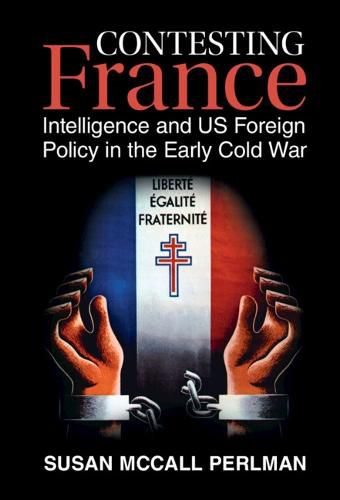Readings Newsletter
Become a Readings Member to make your shopping experience even easier.
Sign in or sign up for free!
You’re not far away from qualifying for FREE standard shipping within Australia
You’ve qualified for FREE standard shipping within Australia
The cart is loading…






Contesting France reveals the untold role of intelligence in shaping American perceptions of and policy towards France between 1944-1947, a critical period of the early Cold War when many feared that French Communists were poised to seize power. In doing so, it exposes the prevailing narrative of French unreliability, weakness, and communist intrigue apparent in diplomatic despatches and intelligence reports sent to the White House as both overblown and deeply contested. Likewise, it shows that local political factions, French intelligence and government officials, colonial officers, and various transnational actors in imperial outposts and in the metropole sought access to US intelligence officials in a deliberate effort to shape US policy for their own political post-war agendas. Based on extensive archival research in the US and France, Susan Perlman sheds new light on the nexus between intelligence and policymaking in the immediate post-war era.
$9.00 standard shipping within Australia
FREE standard shipping within Australia for orders over $100.00
Express & International shipping calculated at checkout
Contesting France reveals the untold role of intelligence in shaping American perceptions of and policy towards France between 1944-1947, a critical period of the early Cold War when many feared that French Communists were poised to seize power. In doing so, it exposes the prevailing narrative of French unreliability, weakness, and communist intrigue apparent in diplomatic despatches and intelligence reports sent to the White House as both overblown and deeply contested. Likewise, it shows that local political factions, French intelligence and government officials, colonial officers, and various transnational actors in imperial outposts and in the metropole sought access to US intelligence officials in a deliberate effort to shape US policy for their own political post-war agendas. Based on extensive archival research in the US and France, Susan Perlman sheds new light on the nexus between intelligence and policymaking in the immediate post-war era.